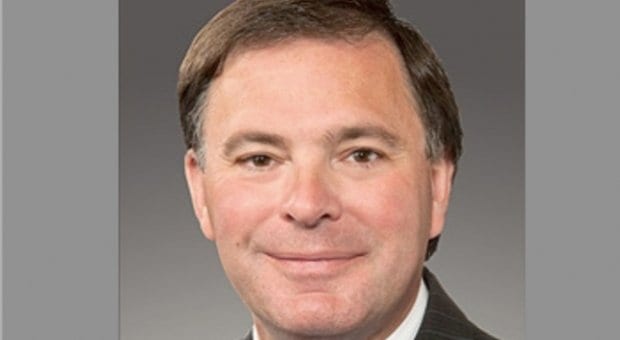
Opposition MLA David Forbes presented the petition requesting the addition of gender identity and expression to the Saskatchewan Human Rights Code. Credit: saskatoon.ctvnews.ca
A petition calling for gender identity and gender expression to be included as prohibited grounds for discrimination in the Saskatchewan Human Rights Code was rejected during a Nov 20 sitting of the legislature.
Opposition MLA David Forbes of the NDP presented the petition.
Calling discrimination against trans people unacceptable, Attorney General Gordon Wyant said the government sought the opinions of the Ministry of Justice and the human rights chief commissioner on whether an amendment to the Human Rights Code is necessary. “In their opinion, the existing wording does protect against discrimination with respect to this particular group,” Wyant told the legislature, adding that the government has “great confidence in the human rights commision and the commissioner with respect to his opinion.”
Forbes cited Nova Scotia, Ontario, Manitoba, Alberta and, just recently, Newfoundland and Labrador as recognizing the importance of this human rights issue. He then asked the attorney general if Saskatchewan would adopt better protections for trans people, noting that Nov 20 is Transgender Day of Remembrance.
Wyant quoted from a letter received from the human rights commissioner, which stated that court and tribunal decisions from across Canada “consistently recognize that transgender persons are protected under the grounds of sex and/or gender.”
“We will not be moving with any amendments to the code at this time,” Wyant told the legislature.
Opposition Leader Cam Broten also quizzed the government about its recently released anti-bullying and cyberbullying report, saying it didn’t provide a lot of detail, nor did it have “much of an action plan.”
Pointing to the federal government’s introduction of legislation governing cyberbullying, Broten asked how Saskatchewan’s government planned to respond to the bill.
Premier Brad Wall said his government needs to see what the federal goverment is considering to determine what, if any, provincial legislation is required. He says the province was among the first to register support for protecting people from that form of bullying.
Broten also questioned the delay in introducing a website on which incidents of bullying could be recorded anonymously. Asked who would be monitoring and following up on reports logged online, Wall says the approach would be a collaborative one. “The Ministry of Education is very much involved, but we’re going to need to be able to work with, and rely on, the leadership of local educators at school boards as well,” he said.
Broten also referred to a statement in the government’s anti-bullying plan that says schools should “respond positively” to gay-straight alliances (GSA), calling it “vague” on details.
Wall replied that an audit has been done to ensure access to “appropriate links” for those looking to set up GSAs in the province’s schools. “There appears to be no impediments to that, certainly none that have come to our attention.”
The Ministry of Education’s website includes a link to MyGSA.


 Why you can trust Xtra
Why you can trust Xtra


